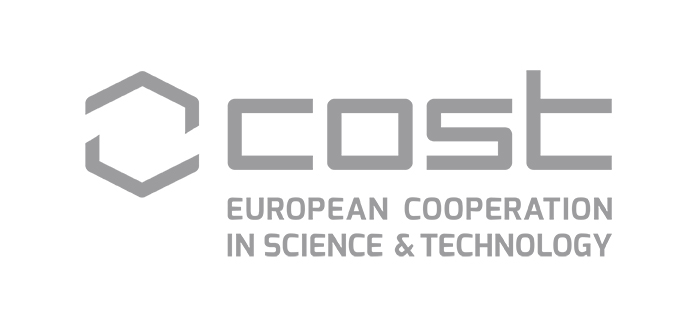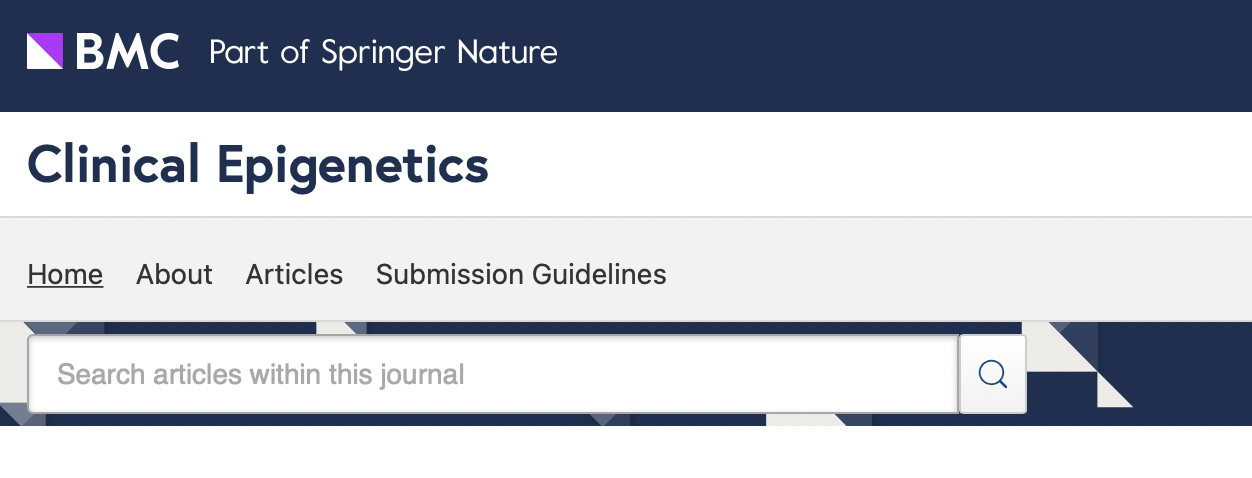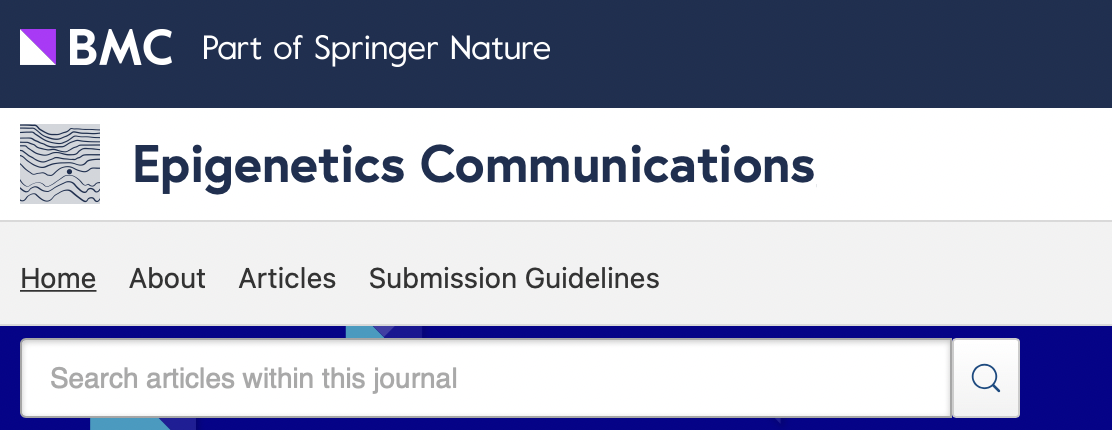SPECIAL SERIES
Multiscale chromatin dynamics
Together with Springer Nature, COST has given INC the possibility to cover publication fees for joint submissions (research papers, reviews, short reports,…) to be considered for publication in a Special Series on [multiscale chromatin dynamics]. This Series will be co-hosted by Clinical Epigenetics and Epigenetic Communications and will undergo stringent peer review. Upon acceptance, Springer Nature ensures good visibility to the publication.
You will find below the projects already in progress. You can participate in one of these projects or initiate a new one by clicking on the “write an article with us” button. To be accepted, your articles will have to include at least three different countries that are members of our INC consortium (see map – home page). It will be a plus if different working groups are included. Thank you in advance for your participation.
Clinical Epigenetics (CLEP)
& Epigenetics Communications (EPIC)
Pernette Verschure | Wim Vanden Berghe
The last few years have seen a wealth of knowledge on the role of epigenetic gene regulation in (patho-)physiological processes. New insights relate to the highly dynamic nature of epigenetic systems. Epigenetic regulatory proteins are in constant motion in the nucleus, exchanging between chromatin-bound and unbound states. In addition, various layers of chromatin folding show defined dynamics. The causal relationship between these dynamics of chromatin and nuclear organization with gene activity and silencing is still an open question of great importance. In this series, we aim to provide an overview of multiscale chromatin dynamics. In particular, we are interested in the following topics, but suggestions for alternative subjects are welcomed:
1. Interpretation of single cell epigenetics and transcription dynamics
2. The relationship between random epigenetic fluctuations and precise control of genome functioning
3. Innovative, quantitative image-analysis tools to determine functional organization of epigenetics, chromatin, and nuclear organization
4. Mimicking chromatin organization with artificial systems to simulate precise perturbations and simulation
5. The role of chromatin and nuclear organization in aging and diseases
EPIC considers and warmly welcomes “negative data” for publication (see website for requirements).
Contact persons
Clinical Epigenetics: Wim Vanden Berghe
Epigenetics Communications: Pernette Verschure
Editor-in-Chief of both journals: Marianne Rots
DEADLINE FOR SUBMISSION
[multiscale chromatin dynamics]
announced soon
Some articles in this collection have been sponsored by COST via payment of the article processing charge and this is indicated on the individual articles. All articles have undergone the journals’ standard peer-review processes.
Please find out more about our journals and their policies (here for Clinical Epigenetics; here for
Submission guidelines can be found here for Clinical Epigenetics/ here for
Please submit to the series via our submission system (here for Clinical Epigenetics; here for
Table listing projects in progress
Journal & Topics
Example: EPIC & 1 (Interpretation of single cell epigenetics and transcription dynamics)
Article type
Review
Senior author
1. Prof. — (WG2)
First author
2. Dr. — (WG3)
Co-authors
3. Dr. — (WG1)
4. Dr. — (WG2)
5. Dr. — (WG4)
—
Countries
1. Netherlands
2. Spain
3. Serbia
4. Portugal
5. France
Example: CLEP & 3 (Innovative, quantitative image-analysis tools to determine functional organization of epigenetics, chromatin, and nuclear organization)
Short report
1. Dr. — (WG3)
2. Dr. — (WG4)
3. Dr. — (WG5)
4. Dr. — (WG4)
—
1. Greece
2. Germany
3. Norway
4. Switzerland
_____
WHAT IS EPIGENETICS?
A video produced by Eskeland laboratory
COST ACTION
COST (European Cooperation in Science and Technology) is a funding organisation for research and innovation networks. Our Actions help connect research initiatives across Europe and beyond and enable researchers and innovators to grow their ideas in any science and technology field by sharing them with their peers. COST Actions are bottom-up networks with a duration of four years that boost research, innovation and careers.
COST
COST (European Cooperation in Science and Technology) is a funding organisation for research and innovation networks. Our Actions help connect research initiatives across Europe and beyond and enable researchers and innovators to grow their ideas in any science and technology field by sharing them with their peers. COST Actions are bottom-up networks with a duration of four years that boost research, innovation and careers.
https://www.cost.eu/
Action Details
- MoU - 108/18
- CSO Approval date - 13/11/2018
- Start date - 13/05/2019
- End date - 13/11/2023
- Former end date - 12/05/2023



© 2024 INC - All rights reserved

